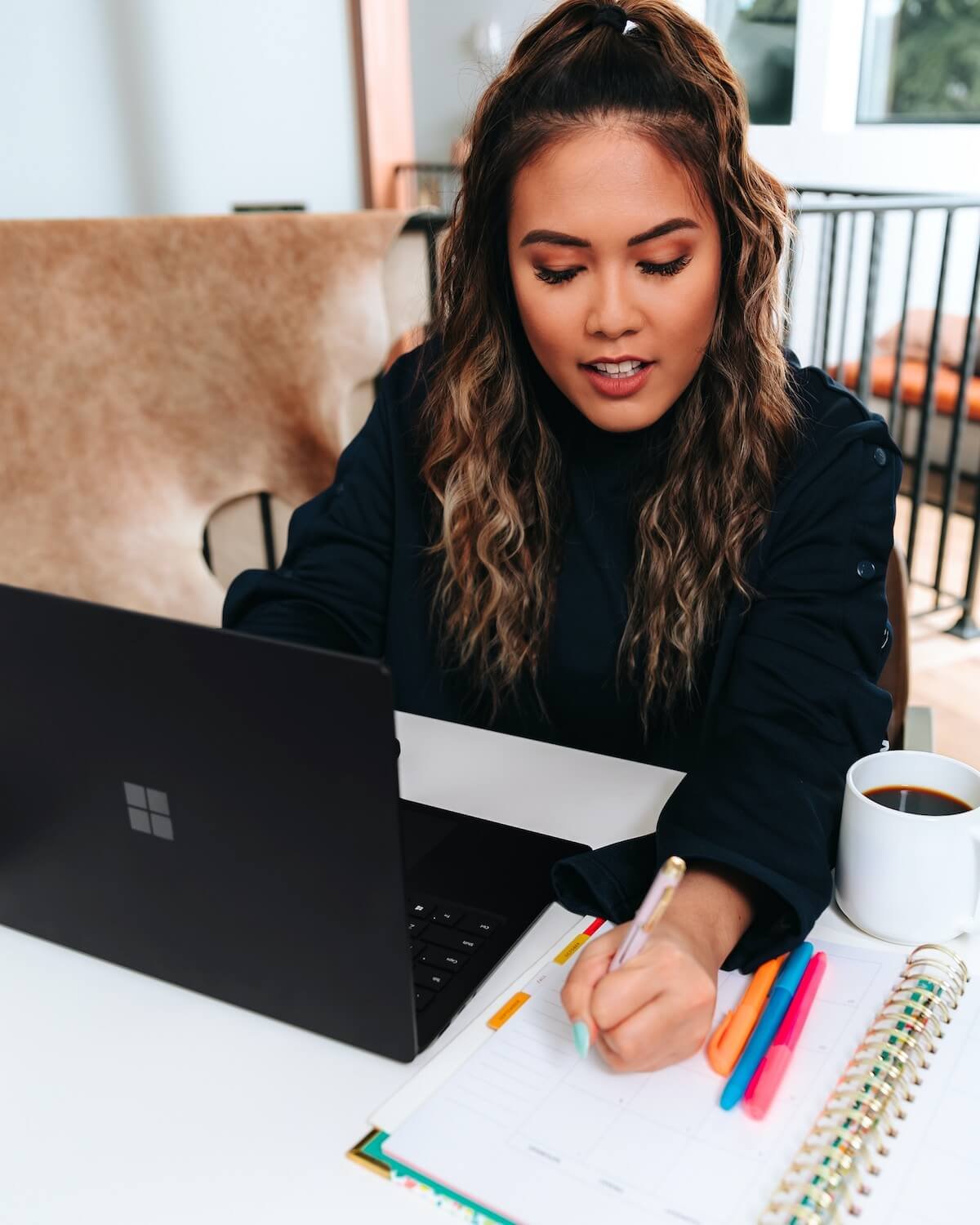I’m An Interviewer—This Is What I Look For
Have you been in a job interview and and realized you suddenly forgot your name? Or, left an interview upset because you felt that it didn’t go well? We’ve all been there. Job interviews are tough, especially when we don’t exactly know what they are looking for. And honestly, every interviewer looks for something slightly different.
Most companies try to combat interviewer bias by having a pre-existing, standardized list of questions to ask prospective employees. This is usually a good thing because it helps even the playing field by decreasing the chances of interviewees having vastly different experiences. If you’re looking to land a good job, try approaching interviews like employers do: establish a standardized strategy.
““If you’re looking to land a good job, try approaching interviews like employers do: establish a standardized strategy.””
This could include practicing your responses to the most commonly asked interview questions, finding a clean and quiet space for virtual interviews in advance, planning out interview clothes, and more. Planning an interview strategy that can be molded to any specific job interview will likely help to calm some anxiety, too. This will, in turn, increase your chances of having a successful job interview—your personality is more likely to stand out when your nerves are calmed and your confidence is high. After all, what I—and most other interviewers—most often look for is a pleasant personality.
Here are some tips to keep in mind during your job hunt.
Be Sure to Read the Job Listing
Interviewees that demonstrate an understanding of the role have an advantage. This shows that the candidate did their due diligence, which likely also means they will be an employee (or intern) who will pay close attention to details. But, let’s say you’ve read the listing and still do not entirely understand what your role will be. That’s okay! This will give you the opportunity at the end of the interview to ask relevant, clarifying questions. This helps to show us that not only did you research the details of the role, but that you are also willing to reach out for assistance when needed—aka be a good team player!
Research the Company
It’s never a good idea to just read a role and apply. You should also be looking into the company to see if you really want to be a member of their team. When it’s time for the interview, showcase that knowledge. Being informed about the company can prove your passion for the organization and its work, as well as show that you went above and beyond to prepare for the interview. Either way, employers love hearing from candidates who not just want the role but also want to work for the company itself.
Ask Specific Questions
This one relates to researching the company and the job listing because the specific questions that you will want to ask should relate to both. Try to have at least 2-3 questions to ask at the end of every interview. But, here’s the catch: the questions should be nuanced. What I mean by that is that it’s generally not a good idea to ask a question that has been explicitly answered on their website or in the job posting. This could indicate that you are not detail-oriented, something most companies frown upon.
Instead, once you’ve thoroughly researched the role and company, you can prepare to ask questions like:
“What does the typical work day for this role look like?”
“Are you able to tell me about the company culture?”
“What do you hope I will accomplish in this role if it is offered to me?”
Then, depending on the interviewer's answers, you could follow up with how you will be able to succeed in the role. For example, if they say the company culture is collaborative, you could respond graciously by saying that you are looking for a friendly and cooperative environment given that you are quite an outgoing and helpful person.
““The questions should be nuanced... [Don’t] ask a question that has been explicitly answered on their website or in the job posting.””
Explain Your Experience
This is an obvious one because just about every single job interview will request a breakdown of your experience. Be sure to highlight your most relevant experience and try to do so in a friendly way. Even when applying for corporate roles, employers really appreciate personable candidates who are able to professionally detail their experience in a way that doesn’t sound forced. Basically, don’t just repeat your experience: showcase your personality. You can do so by casually mentioning why you had your past experiences. For example, if you worked as a personal stylist at Nordstrom for two years because you cherished the ability to help others feel beautiful, you could further explain that this role allowed you to do so while also strengthening your skills in sales, communication, and marketing.
““...employers really appreciate personable candidates who are able to professionally detail their experience in a way that doesn’t sound forced. Basically, don’t just repeat...showcase your personality.””
Talk About Your Skills
Your skills are different from your experiences. If you list your experiences without also discussing the skills that they taught you or the skills that you brought to these challenges, there is a chance that you won’t be high on the callback list. This is because it’s one thing to hold a position, but it’s another thing to make that position your own. Explicitly talking about your skills—especially when tying them into your own passions and experiences—will help you stand out. You will be more memorable because you are showing that you’re not just a great candidate for this specific role, but for most roles as your skills are strong, unique, and varied.
““It’s one thing to hold a position, but it’s another thing to make that position your own.””
Dress Appropriately
As a Gen-Z woman, I personally loathe the notion that someone has to look a certain way in order to qualify for a role. Unfortunately, for the wide majority of organizations, this practice is still the norm so I must mention it. The best advice for this is to come dressed in business casual or formal attire for any interview no matter the field, whether it’s a position at an accounting firm, law office or a fast food location. If the organization has social media accounts, you could scour their pages to see what employees typically wear and put together a suitable outfit based around that. Remember, even for virtual Zoom interviews, most jobs are looking for a candidate who appears prepared in every way. So be sure to put on your favorite blouse (but also maybe secretly wear your lucky sweatpants)!
What Are The Most Likely Questions An Interviewer Will Ask?
While there are dozens upon dozens of standardized interview questions, let’s look at a few of the most common open-ended questions that you may be asked in a job interview and how to best answer them.
“What makes you a good fit for the position?”
Here is your opportunity to showcase both your skills and research. By that I mean, demonstrate that you’ve read the job description thoroughly by emphasizing how your specific skills will benefit the existing duties of the roles. An example would be a job that lists graphic design skills as an added plus: you could casually mention your years-long passion for crafting flyers.
Describe a time when you had to overcome a challenge.
This one can be tricky, especially when an employer doesn’t clarify if this challenge should be work-related or personal. If you’re unsure, take initiative and ask for clarification! Regardless of the type of challenge, try to answer in a way that highlights your strengths. For example, the greatest challenge in your previous role was learning the company’s database; however, once you learned, you became so knowledgeable at it that the situation piqued your interest in IT, and you’re now an expert at all things concerning internet technology.
What are your weaknesses?
Similar to discussing challenges, be authentic, but also be sure to say what it taught you. In an interview, most employers look for candidates who can spin the negative into a positive. For example, if your weakness is PowerPoint creation, go ahead and explain the steps you are taking to strengthen that weakness, such as making PowerPoints for fun.
Why are you leaving your current position?
This can be another tricky question, especially if you aren’t leaving your current gig on the greatest terms or by your own choice. Thankfully, your new employer doesn’t have to know that. One strong, concise answer to this question would be explaining that you are looking to broaden your skill set and appreciate all that you’ve learned from your current role.
How do you stay organized?
Another key factor that most employers look for is organization. Here, you could talk about how you prioritize tasks since most jobs are going to ask you to multitask. For example, explain that you organize tasks not just based on deadlines, but also the research and outreach required. You could even proactively give an example of what one day of multitasking would look like for you if you took on this role!
If there’s just one thing you should remember before heading into an interview it is this: There is little need to be nervous. Your foot is already in the door, so relax and let your personality steal the show!







